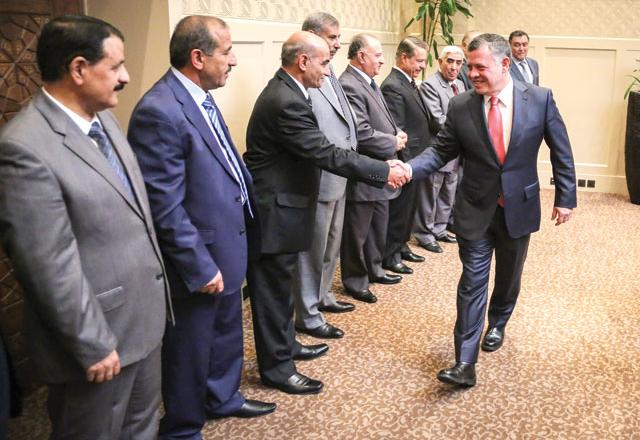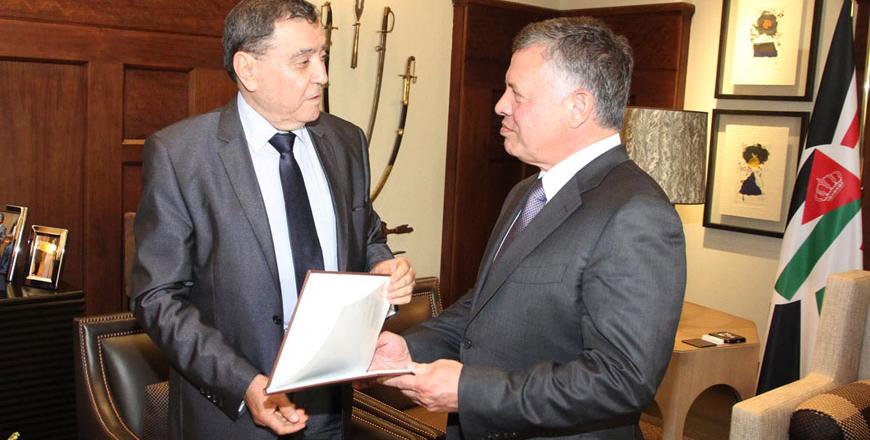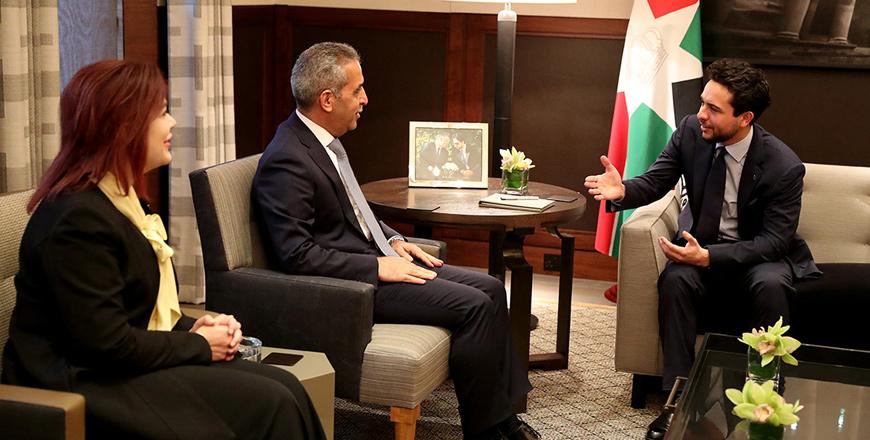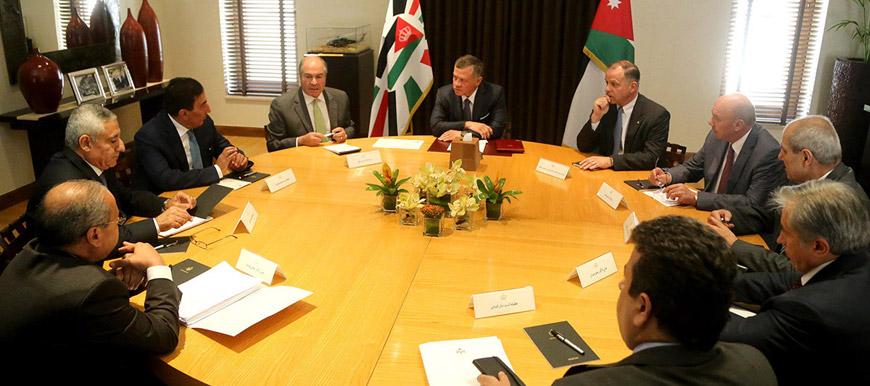You are here
Independent, neutral judiciary a main pillar in reform drive — King
By JT - Oct 22,2014 - Last updated at Oct 22,2014

AMMAN — Having an independent, neutral and transparent judiciary is a main pillar in Jordan’s comprehensive reform endeavour, His Majesty King Abdullah said Wednesday.
At a meeting with the president and members of the Higher Judicial Council at Al Husseiniya Palace, the King stressed the judiciary’s role in entrenching the rule of law, protecting citizens’ rights, safeguarding freedoms and bolstering the state’s sovereignty, a Royal Court statement said.
Voicing his full support for the judicial authority in its efforts to maintain independence and neutrality and develop its capacities, His Majesty said the judiciary enhances public trust in the state.
The more efficient the judicial authority is, the more citizens trust it and the state, King Abdullah noted, expressing his faith in the judiciary and his appreciation of the efforts exerted by all those working in the sector to serve society.
“The way ahead still lies open before us towards more work and achievements,” he said at the meeting, which addressed the challenges facing judicial work.
The King said speeding up litigation procedures requires the development of laws and administration methods, including the opening of specialised courtrooms.
He also called for continued efforts to improve and develop the judicial authority by employing experienced human resources and building the capacity of judges through specialised training and rehabilitation programmes.
During the meeting, attended by Royal Court Chief Fayez Tarawneh and King’s Office Director Imad Fakhoury, Higher Judicial Council President Hisham Tal gave a briefing on the council’s achievements in safeguarding rights and consolidating the rule of law.
He highlighted the judicial strategy for the years 2012-2014, in addition to the drafting and dissemination of the judicial code of ethics.
He also referred to the regional and international activities of the Judicial Institute of Jordan to exchange expertise and knowledge with Arab and foreign countries.
The institute has sent experienced Jordanian judges to various countries that requested to benefit from their expertise, is a testament to the good reputation of the judicial authority, he said.
Discussions during the meeting also covered the symbiotic relationship between the judicial council and all state institutions, in addition to the need to cooperate with civil society organisations and human rights centres.
Speaking to the Jordan News Agency, Petra, after the meeting, Tal said the King’s directives will be translated into an action plan for the council to follow.
He noted that the plans to develop the judiciary entail human resources training, developing courts, exchanging expertise and putting all available knowledge resources at the disposal of judges in the course of their work.
The plans also focus on accountability by awarding competent judges and improving the performance of others, Tal added.
Judiciary facts
•The Jordanian Higher Judicial Council has the legal authority to perform administrative oversight over all civil judges in the Kingdom. It also has oversight powers over judge’s employment, assignment, secondment, promotion, transfer, questioning, discipline and retirement.
•The council is responsible for enhancing and developing the judicial system.
•World Justice Project indicator puts Jordan in 38th rank out of 99 countries in the world for 2014. On the actual independence of the judiciary, Jordan is ranked 31st.
•Jordanian judicial staff for 2014 consists of 908 civil judges (142 females).
•Out of 486,889 court cases, 426, 518 have been wrapped up, which is equivalent of 88 per cent of total cases.
Related Articles
AMMAN — His Majesty King Abdullah on Monday met with Judicial Council President Hisham Tal who delivered the annual report on the judicial a
AMMAN — Deputising for His Majesty King Abdullah, Crown Prince Hussein on Thursday discussed with President of the Supreme Judicial Council
AMMAN — His Majesty King Abdullah on Sunday stressed the importance of implementing the recommendations of the Royal Committee for Developin

















